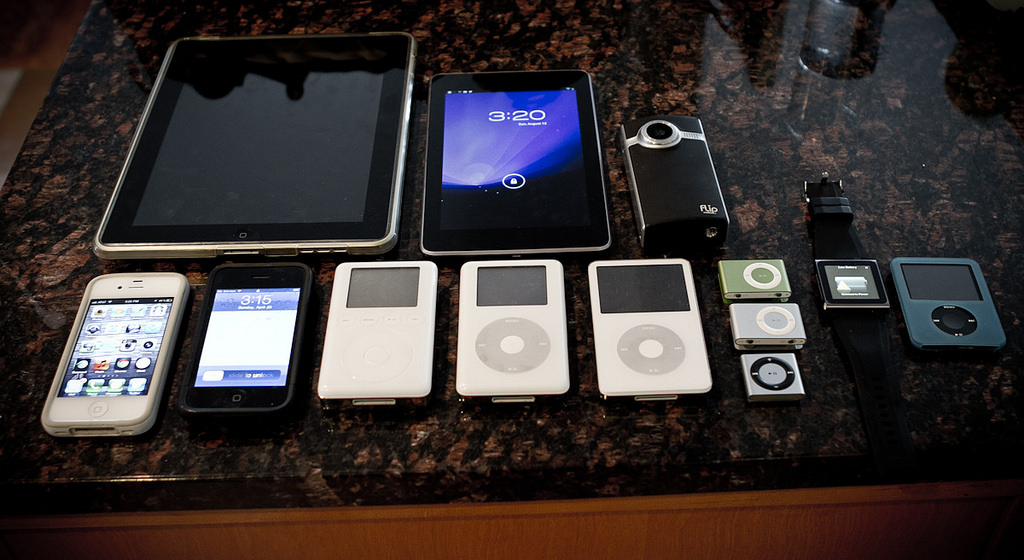“Technology and the limits of innovation”
October 31From the late 1980’s to to the early 2000’s, the world witnessed massive development of computer technology. Muhammed Badamasi, 22, a Correspondent from Lagos in Nigeria, says this period ushered in a new era through the mass production of personal computers, but at an unexpected cost.
It is not an exaggeration to say that information technology has revolutionised the world.
Business services, learning, entertainment and many more have been made easier and more accessible due to information technology, to the extent that many activities today have become largely -and in some situations- solely dependent on the internet. Traditional means of performing such actions have been abandoned. An example is the neglect of postal services.
Today’s youth were born either in the beginning or middle of this period. They were raised (to varying extents) in a period where computers and technological gadgets were fast becoming essentials of life, many of them learning how to operate computers as early as the age of five. The early introduction to computers and technological gadgets and the important role they played has influenced the personalities and psychology of today’s youth to a large extent. Many trends brought by the internet and computers, such as chatting or social networking that forms an essential part of their lives, are phenomenons that exist for the first time in history. A couple of years ago, there were no hashtags, search engines, face timing, e-stores, or e-books. There was simply no “e-anything.” This article addresses the adverse effects of information technology on innovation and creativity among youths.
Famous English statesman and former prime minister Winston Churchill once said “Without tradition, art is a flock of sheep without a shepherd. Without innovation, it is a corpse.” In the absence of innovation and creativity, life would be either dead or a long monotonous stretch of time. Innovation is the very air that development and advancement breaths. So important is it that many civilisations have been made or marred by its presence or absence.
In previous times, the youth have been known to be the bedrock of innovation and creativity. Young men and women were known to be at the forefront of innovation in art, business, governance and many other areas. Many of today’s historical figures who brought about revolutions in their various fields had one common characteristic: youthful creativity. In fact, youths were relied on as agents of social change due to their energy and healthy vigour.
In recent times, the critical role of youths as agents of change has been forgotten due to their inability to create or innovate. These are now virtues possesed by a handful of young people and a major reason for this is the dominance of information technology.
Walter Lipman, writer and political commentator once said “When all think alike, then no one is thinking.” It is true that information technology has brought great advancement to the world. Through its application, access to knowledge has become surprisingly easy and fast, communication has become painless, and entertainment has become more interesting. However, with this ease has come a certain sense of stability, predictability, and assurance – that with the click of a button or dial of a digit, anything can be done or undone. Performing day to day actions have become absurdly systematic.
The over reliance of today’s youth on the internet for almost everything has reduced the need for individual initiative. The internet simply tells us what to do and how to do it, what to think and how to think. Opinions of various individuals on issues have become so repeated and easily accepted that they are taken as factual statements, and the importance of unconventional thinking and radical perception have been completely watered down. It is understandable that change easily becomes a detestable option when placed in contradistinction with stability, however we must understand that no advancement comes without change or turbulence. The artist Pablo Picasso expressed this same opinion when he said that “every act of creation is first of all an act of destruction.”
Regardless of this, all hope is not lost. The solution is that we as youths must learn to depend less on the knowledge of other people. We must embrace critical thinking, rely more on knowledge obtained from personal experience and intuition, and be more opiniated. We must explore the depths of youthful vitality, for that is the only route towards progressive impact.
The words of Charles Kettering, American inventor, engineer, businessman, and the holder of 186 patents serve as a reminder to everyone. “All human development, no matter what form it takes, must be outside the rules; otherwise we would never have anything new.”
photo credit: dhgatsby Digital Sickness via photopin (license)
…………………………………………………………………………………………………………………
About me: I am an avid reader, writer and enthusiast of African literature. I am a freelance writer and commentator on socio-political issues, and am also involved in the advocacy for good governance and leadership. Currently, I am a law student at Obafemi Awolowo University, Ile-Ife, Nigeria.
…………………………………………………………………………………………………………………
Opinions expressed in this article are those of the author and do not necessarily represent the views of the Commonwealth Youth Programme. Articles are published in a spirit of dialogue, respect and understanding. If you disagree, why not submit a response?
To learn more about becoming a Commonwealth Correspondent please visit: http://www.yourcommonwealth.org/submit-articles/
…………………………………………………………………………………………………………………







